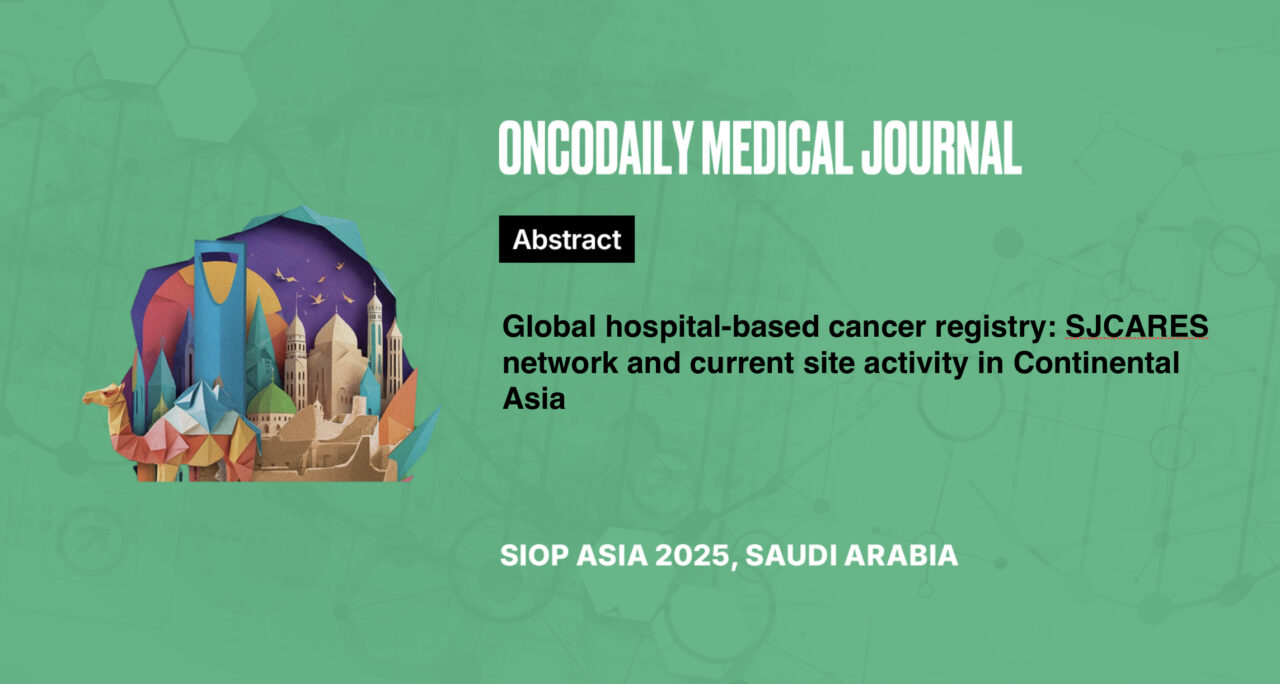Global hospital-based cancer registry: SJCARES network and current site activity in Continental Asia
Abstract
Introduction: The SJCARES Registry is a St. Jude Global led hospital-based cancer registry network designed to promote registration of pediatric cancer patients internationally. We report data from active network registries in continental Asia.
Methodology: The SJCARES Registry collects data using standardized case report forms (CRFs). Participating hospitals have complete ownership of their data governed by executed data use agreements (DUAs). Patients are enrolled upon suspicion of cancer in the hospital and followed for up to 5 years. Data is entered into a cloud-based platform where central support for data cleaning is provided, and quarterly reports are generated.
Results: In continental Asia, 44 sites in 20 countries have signed DUAs to join the network and are currently at different stages of onboarding. 11 sites have started registering patients. The cumulative number of patients registered as of December 5, 2024 was 11,896 of which 5,008 (42%) were registered during the previous 12 months. Demographically, 7,183 (60%) were males and the median age of diagnosis was 6 years (IQR=8). ,585/10,371 (92%) of cases were microscopically verified. The median time from onset of cancer-related symptoms to first medical assessment was 21 days (IQR=22).
The most common morphology was Acute Lymphoblastic Leukemia (N=3,386/10,804;31%) followed by CNS tumors (N=994/10,804;9%) and Acute Myeloid Leukemia (N=741/10,804;7%). The number of patients who initially received curative treatment was (N=8,538/10,264;83%). Cancer directed treatment modalities included chemotherapy (N=8,122/8,538;95%), surgery (N=1,429/8,538;17%) and radiotherapy (N=559/8,538;7%). The number of patients with at least one follow-up CRF was 4,110 (35%), of which 1,001 patients (24%) were reported dead; the most common primary cause of death was neoplasm (N=870/1,001;87%), sepsis (N=54/1,001;5%), and infection other (N=31/1,001;3%).
Conclusion: The SJCARES Registry network provides an accessible, freely available solution to improve cancer registration numbers globally. The registry provides baseline and ongoing data to support hospitals in developing quality improvement interventions.





